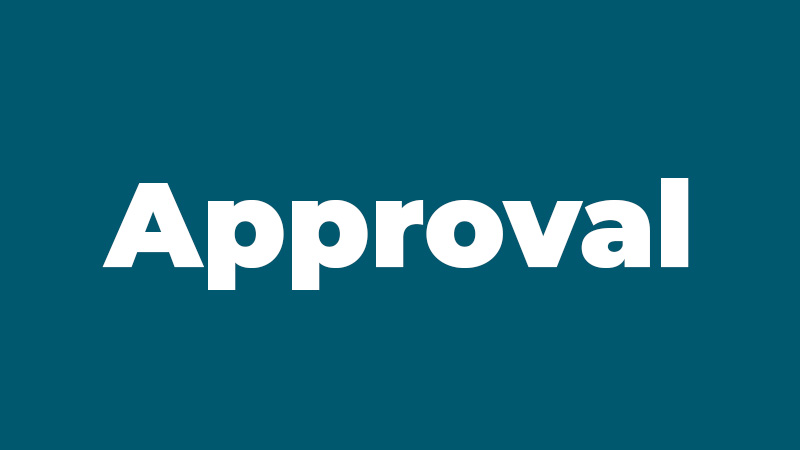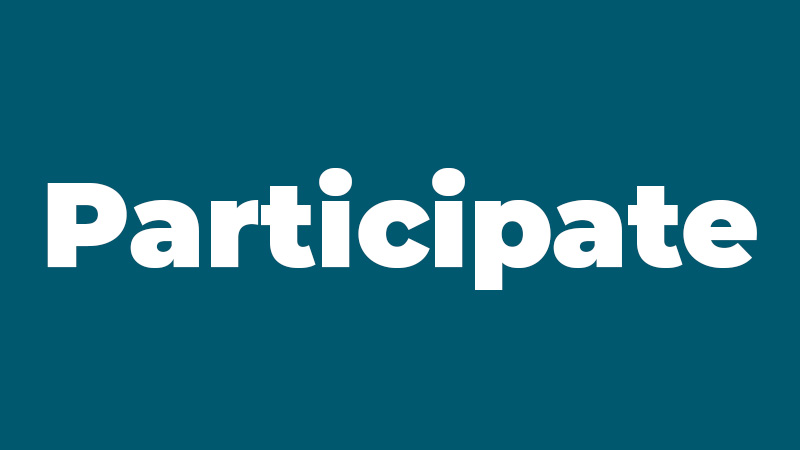MOC Projects
Seattle Children's participates in the American Board of Medical Specialties (ABMS) Multi-Specialty MOC Portfolio Approval Program (Portfolio Program). The Portfolio Program offers a single process for healthcare organizations to support medical staff involvement in quality-improvement and Maintenance of Certification (MOC) across multiple ABMS specialties.
This pathway offers a streamlined approach for organizations, such as Seattle Children's, that sponsor and support multiple well-designed quality-improvement efforts involving medical staff across multiple disciplines to work with participating ABMS member boards to grant Part 4 MOC credit to physicians (and Category 1 PI-CME credit to physician assistants) who are involved in those improvement efforts. (View a list of ABMS member boards involved in the ABMS Portfolio Program.)

Step 1: Bring your ideas to us. We will help move your idea into a project that will meet ABMS standards.

Step 2: Prepare and application and present to our community. Our staff will provide coaching as needed.

Step 3: Run your project as planned, incorporating any changes suggested by our committee. Our staff will provide coaching as needed.

Step 4: Renew your project annually for continued PDCA cycles.
Project requirements
Projects must:
- Have leadership at the project level that is capable of ensuring physician adherence to the participation criteria (see below)
- Impact one or more Institute of Medicine quality dimensions: safety, effectiveness, patient-centeredness, timeliness, efficiency and/or equity
- Have a specific, measurable, relevant and time-appropriate aim for improvement
- Use appropriate and relevant performance measures related to patient care at the appropriate unit of analysis (physician, clinic, care team, etc.)
- Include appropriate intervention(s) to be tested for improvement
- Include appropriate and repetitive data collection and reporting of performance data to assess the impact of the interventions. The frequency of data collection should be appropriate to the measures for the QI effort.
- Possess sufficient and appropriate resources to support the successful conclusion of the activity without introducing a conflict of interest
- Address problems participating physicians can influence in their own practice
- Actively engage physicians
- Use standard QI methods
- Document participant activities and results
- Comply with HIPAA and other regulatory/corporate integrity standards
Project Leader Requirements
MOC project leaders must be able to lead and teach quality improvement by doing one or more of the following:
- Complete formal quality improvement training (such as Institute for Healthcare Improvement Open School)
- CPI Leader Training (Seattle Children's Hospital only)
- Lead a Clinical Standard Work Pathway (CSW) project (i.e., be a "CSW owner") for more than 12 months in the improvement phase (Seattle Children's Hospital only)
- If the above do not apply, plan to obtain the necessary QI leadership skills by working with the assigned QI coach prior to the start of your project.
MOC project leader duties include:
- Early consultation with the MOC portfolio manager to determine appropriateness of the proposed project
- Submit an online MOC Project Application
- Present the project to the MOC Committee for approval from the MOC Portfolio Program
- Oversee physician participation and learning
- Orient participants to the MOC project and process
- Monitor meeting attendance and participation
- Assess QI knowledge of participants and teach QI methods when indicated
- Review and approve physician attestation form
- Oversee MOC project
- Lead team meetings and establish global and specific aims
- Lead design of intervention(s)
- Develop presentations and lead team discussion using the IHI Model for Improvement
- Evaluate impact of intervention(s) to achieve aims
- Oversee data collection and analysis
Would you like to lead a MOC-approved project at Seattle Children's Hospital? Please contact the MOC team for more information and next steps.

Step 1: Select a project and sign up using our online system.

Step 2: Attend required project meetings. Complete project interventions.

Step 3: Complete a final attestation form.

Step 4: We will submit your participation directly to your board. Credit will be issued in 4 to 6 weeks.
Part 4 MOC credit (and Category 1 PI-CME credit for PAs) requirements
To receive Part 4 MOC credit (e.g., 25 American Board of Pediatrics points)/Category 1 PI-CME credit from Seattle Children's MOC Program, all physicians/physician assistants must complete the following:
- Attend at least three team meetings where a run chart is evaluated to assess the impact of the intervention. One meeting must be the Attestation Meeting.
- Collect and monitor data to assess the impact of the intervention. We suggest that data collection and usage include:
- Use of relevant outcome, process and balancing measures to effectively assess impact of interventions and potential unintended consequences
- Sufficient sample size to support effective assessment of the impact of the intervention. The frequency of the data collection should be appropriate to the measures for the QI effort.
- Timely feedback reports at the appropriate unit of analysis to allow frequent, rapid improvement cycles
- Evidence that data are of sufficient quality to provide accurate guidance to the project team
- Use of appropriate charting or reporting tools to document performance over time (e.g., annotated run charts, control charts, etc.)
- Activities should be of sufficient duration to allow for physician participation in at least one full “PDCA cycle” (cycle of assessment, intervention and re-measurement).
- Participation in more than one full PDCA cycle is strongly encouraged and will be a requirement in the future.
- Submit an online attestation form to the project leader for review and approval. All attestations are also reviewed by the Seattle Children's Portfolio Program.
We are excited to offer many opportunities for physicians to learn how to continuously improve the delivery of care to their patients. See the list of approved projects.
Approved Projects
We are excited to offer opportunities for physicians and physician assistants to learn how to continuously improve the delivery of care to their patients. Our projects are approved for ABMS Part 4 MOC credit for physicians (and Category 1 Performance Improvement [PI] CME credit for physician assistants certified with the National Committee on Certification of Physician Assistants [NCCPA]). For a more current list of approved projects, please contact MOC.
Unless otherwise stated, these projects are only available to physicians or physician assistants with a relationship with Seattle Children’s or its affiliates. To know if a project is currently open for enrollment, or if you are interested to participate in a project, please contact MOC.
Clinical researchers often struggle to operationalize the ethical imperative that research participants reflect the diversity of the populations affected by the conditions or experiences being studied. Using didactic presentations and case-based discussions, this project will help you learn and integrate best practices for equitable research at each step of the research process.
The GATHER MOC Project is a nationally recognized project for providers to learn to improve their health equity practice using quality improvement, self-assessments and peer discussion. Participants will work with multidisciplinary teams to identify obstacles and develop methods for enhancing healthy equity for patients at our organization. By joining the GATHER Project, you will play a vital role in fostering this culture while advancing your own professional growth.
Inefficient and unnecessary time in the local EMR can contribute to provider frustration and burnout. This project aims to provide job satisfaction by increasing clinician confidence and self-perception of efficiency in using Epic (EMR). Participants will attend small group teaching (i.e., workshop series) on identified high yield topics, enhance their skills at EMR features such as chart review, documentation and order entry, etc.
This project aims to reduce adolescent suicide risk by developing and implementing a suicide prevention workflow that includes annual primary care-based STB screening and intervention (when indicated) for 10- to 18-year-old patients. Participants will attend meetings to better understand current practices and barriers in suicide assessment and intervention, personalize their documentation tools and apply tools in practice. Ongoing feedback and surveys will help refine training to address knowledge gaps and pain points.
2020 MOC Project with the Greatest Impact
2016 Best Project
The overall goal of this project is to improve influenza screening rates in ambulatory settings at Seattle Children's through creating standard work. Specifically, this project aims to:
- Achieve an influenza vaccination rate of 90% for all medically fragile populations (as defined by U.S. News & World Report) seen in our outpatient clinics between October 1 and December 31 each year.
- Ensure their status is documented in CIS.
Participation in this project is limited to physicians who work at Seattle Children's.
Rates of burnout are on the rise for medical professionals, which leads to decreased patient satisfaction, patient safety and medical staff well-being. This project aims to reduce burnout by increasing trait mindfulness in medical staff. Participants will attend sessions to learn about and recognize various stress responses; develop skills of mindful communication to enhance patient care, collegial relationships and personal relationships; create a personal toolkit of useful mindfulness and self-compassion techniques; and actively use these methods informally in the moment and in at-home exercises.
Juvenile Idiopathic Arthritis (JIA) requires complex care for inflammatory arthritis. Symptoms may come and go, and flares, which are characterized by inflammation and worsening of symptoms of pain, stiffness, and fatigue. JIA has no cure and the goal of care is to achieve a state of inactive disease or very low disease activity. Undertreated disease can result in permanent disability and chronic pain. Currently, there are variations in how JIA is treated and in outcomes achieved by different treating centers. This project aims to improve the processes of care and outcomes for JIA children and youth, reduce unwarranted variation, so that more patients are able to achieve low or inactive disease and reach their life goals with improved quality of life.
High-quality communication improves patient outcomes, including adherence, trust and satisfaction. Most clinicians have received limited training in complex communication tasks, including discussing serious news, navigating conflict or eliciting goals of care. It is often assumed that either 1) clinicians' bedside manner is an immutable characteristic, i.e., they are either naturally "good" or "bad" at communication, or 2) more clinical experience with challenging conversations automatically leads to an improvement in communication. Yet, data suggests that communication is a skill, just like any other in medicine, that can be improved with education and deliberate practice. When "good communication" is broken down and labeled as discrete communication skills, clinicians can identify both their current strengths and areas they would like to improve in.
This project aims to improve serious illness communication with patients and families at Seattle Children's Hospital. Specifically, at the end of the project, ≥80% of participant responses are "always" or "often" on self-assessment of 1) reflection and debrief of communication and 2) communication skill utilization.
Addressing gaps in social determinants of health (SDoH) needs has demonstrated a major impact on overall health, well-being, and quality of life. Recent studies have found that overall, 12% of families seeking pediatric health care report a general social need with this number increasing to over 50% in the Medicaid population. Seattle Children’s Care Network (SCCN) patients may have gaps in care due to unmet/unidentified SDoH needs, particularly those patients with Medicaid insurance. Most SCCN practices have not yet established proactive, standardized screening for SDoH needs at well-child visits. Additionally, practices have not yet established standardized documentation of follow-up for identified SDoH needs.
The project aims to increase the SDoH screening data capture rate from current baseline of 7% to a target of 15% for all SCCN patients ages 0-18 years who have completed well-child visits by June 2025. Project participants will select and implement use of standard SDoH screening tool, implement standard use of EMR-specific alerts or reminders relative to SDoH screening, and clinic workflows inclusive of SDoH screening, documentation and closed-loop follow ups with patients and families, etc.
2019 Best Project
2017 Best Project
Due to shifts in burden of patient coverage and expectations for 24-hour access, faculty physicians have disrupted sleep habits. This can lead to fatigue, insomnia, and other significant adverse physician and mental health consequences (shift work disorder). Suboptimal physician wellness subsequently can negatively affect patient care and patient safety. It can also lead to poor physician career satisfaction and poor physician retention (loss of physicians to other careers with more traditional work schedules or early retirement). This project aims to educate physicians about sleep disturbances due to atypical shift work and ways to mitigate these deleterious effects ultimately leading to better sleep habits, improved physician health, improved patient care and better physician retention. Participants will attend workshops, implement strategies, complete surveys and diaries, and review data at team meetings.
Childhood and adolescent vaccination rates remain suboptimal, and vaccine administrations have decreased during the pandemic. Reasons for this are multifactorial, including factors at the level of the patient and family, provider, primary care practice, and community. The aim of this project is to improve child and adolescent vaccination coverage in Washington state. Over a 6-month period, participating clinics will do this by identifying missed vaccination opportunities, implementing improvements, receiving regular data and coaching, and will benefit from participating in a community of clinics working toward the same goals.
Contact Us
General inquiries: (email)
Program Director: Joel S. Tieder, MD, MPH (email)
Program Manager: Cheery Yip (email)
Program Coordinator: Grace Franada (email)
